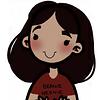You need to sign in or sign up before continuing.
Take a photo of a barcode or cover
Watchmen is a great fucking story... Not much more to say
I enjoyed it, although I don't see why everyone is so "Z0MG! So groundbreaking!" about it.
It sure has a bleak world view.
Also the plot is as full of holes as pretty much any story that has a character who is basically omnipotent (or close enough).
I *am* however quite curious to see how the heck the turn the storyline into a movie!
It sure has a bleak world view.
Also the plot is as full of holes as pretty much any story that has a character who is basically omnipotent (or close enough).
I *am* however quite curious to see how the heck the turn the storyline into a movie!
I get it's significance and whole 'point' of the story...I just had a hell of time trying to get through it.
Definitely a book that makes you think... it takes a while for things to start to make sense, but then, at the end, you're shell shocked. Definitely interesting.
I'm not usually all that into graphic novels, but this was amazing. A really interesting view on a world in which, inspired by the comics, people actually start dressing up and fighting crime. And what kind of person becomes a masked vigilante anyway?...
Upon re-reading this book, I was struck by how cinematic it was at times. Particularly near the beginning and the end, some of the pages felt like they were using the tricks of the cinema (very well!) so I can see just why it was so tempting to film it. Still, there's just so much here, with its multi-layered story, including to mention the parallel Tales of the Black Freighter story and the extracts at the end of each issue that the film would inevitably not be able to fit it all in.
The depth of the characterisation is wonderful to read and Gibbons' art really draws you in. For me, the second reading also added a lot to it, finding a lot that I had missed or not entirely understood first time round.
The depth of the characterisation is wonderful to read and Gibbons' art really draws you in. For me, the second reading also added a lot to it, finding a lot that I had missed or not entirely understood first time round.
I don't know much about comic books, but I enjoyed reading this one! Character development was really great, and this made me want to read more graphic novels of this length.
I went into reading Alan Moore’s Watchmen knowing that it was one of the greatest graphic novels of all time, only for it to completely and utterly surpass and destroy any expectations that I had. If I had to sum it up, The Watchmen is a deconstruction of the superhero genre, the grounding of a fantasy-esque and borderline utopian idea into reality. Sure, there are many superhero stories that are dark and gritty, ones that involve real world issues and societal struggles, but none to the extent and effectivity of The Watchmen. At the same time, there were sections that retained characteristics of a superhero story, the most obvious of those Rorschach’s character and narration. Out of all the characters, Rorschach was the one who maintained a thought process where what he thought was “good” or “right” should always prevail, thus explaining his choice to expose Adrian Veidt after Veidt saved humanity. I saw Rorschach as a humanization of a superhero’s ideal, of the ideal of societies to enforce “justice”, whatever that may entail doing. Unlike most other superhero stories, the different ideals and beliefs of the Watchmen (and the Minutemen) were the reason they were never able to properly work together. It seems like a common oversight for most other superhero stories; the world needs saving so the heroes should join forces and everything works out. But that doesn’t happen in The Watchmen. In fact, it’s almost reminiscent of real world governments and powers joining forces, only to cause more conflict and war, different ideals whose coexistence would never quite work out.
Outside of the political and societal ideas in The Watchmen, one of the things that blew me away the most was the presentation and the utilization of its medium. There were times when I’d spend time sitting and marveling at each and every panel, because it seemed that every choice that was made was deliberate: the composition, the color scheme, the placement of the text and it’s font, the visual imagery etc. The amount of attention to detail allowed for every scene and sequence to create a certain mood and atmosphere, sometimes for emotional impact, other times almost imitating various genres of graphic novels. These differences were obvious and allowed for smooth transitions between character perspectives, situations, times and locations, and definitely helped me personally to navigate a story as complicated as this one. I particularly liked the scenes at the newsstand, where the perspectives of normal, non-vigilante people reflected the downward progression of society was contrasted with the protagonist of the comic within a comic, Tales of the Black Freighter, and his eroding sense of humanity and compassion. Another form of storytelling that really blew me away were the scenes where Rorschach “visited” Moloch. The panels alternated color schemes and visual perspectives, almost causing whiplash as the reader moves between Moloch’s fear and desperation and Rorschach’s calculated domination. There are so many more scenes that I could point out due to the unique way that the story was told (such as Laurie dropping the snow globe and Veidt’s perfume, almost acting as foreshadowing), and it made every single scene more effective and memorable. Huge props to Dave Gibbons and John Higgins for pulling off something as complicated as this.
The only thing that I feel a little lukewarm about is the ending. I can’t quite decide if I like it or not. It seems to try and wrap up the story’s conflicts while purposely leaving (and highlighting) loose ends. It almost ends the way a war would, a sort of half resolution.
I definitely think that this is a book that everyone should read, although it should be noted that The Watchmen covers many difficult topics and contains violent and gruesome imagery, and is more suited toward adults than children. It’s a graphic novel that works for even those who don’t read graphic novels, all while building a world that seems realistic and intimate.
Outside of the political and societal ideas in The Watchmen, one of the things that blew me away the most was the presentation and the utilization of its medium. There were times when I’d spend time sitting and marveling at each and every panel, because it seemed that every choice that was made was deliberate: the composition, the color scheme, the placement of the text and it’s font, the visual imagery etc. The amount of attention to detail allowed for every scene and sequence to create a certain mood and atmosphere, sometimes for emotional impact, other times almost imitating various genres of graphic novels. These differences were obvious and allowed for smooth transitions between character perspectives, situations, times and locations, and definitely helped me personally to navigate a story as complicated as this one. I particularly liked the scenes at the newsstand, where the perspectives of normal, non-vigilante people reflected the downward progression of society was contrasted with the protagonist of the comic within a comic, Tales of the Black Freighter, and his eroding sense of humanity and compassion. Another form of storytelling that really blew me away were the scenes where Rorschach “visited” Moloch. The panels alternated color schemes and visual perspectives, almost causing whiplash as the reader moves between Moloch’s fear and desperation and Rorschach’s calculated domination. There are so many more scenes that I could point out due to the unique way that the story was told (such as Laurie dropping the snow globe and Veidt’s perfume, almost acting as foreshadowing), and it made every single scene more effective and memorable. Huge props to Dave Gibbons and John Higgins for pulling off something as complicated as this.
The only thing that I feel a little lukewarm about is the ending. I can’t quite decide if I like it or not. It seems to try and wrap up the story’s conflicts while purposely leaving (and highlighting) loose ends. It almost ends the way a war would, a sort of half resolution.
I definitely think that this is a book that everyone should read, although it should be noted that The Watchmen covers many difficult topics and contains violent and gruesome imagery, and is more suited toward adults than children. It’s a graphic novel that works for even those who don’t read graphic novels, all while building a world that seems realistic and intimate.
I didn't really enjoy or even like reading it but I can't deny that it was well crafted and thought out and even though parts of it felt forced, I think it worked holistically.




